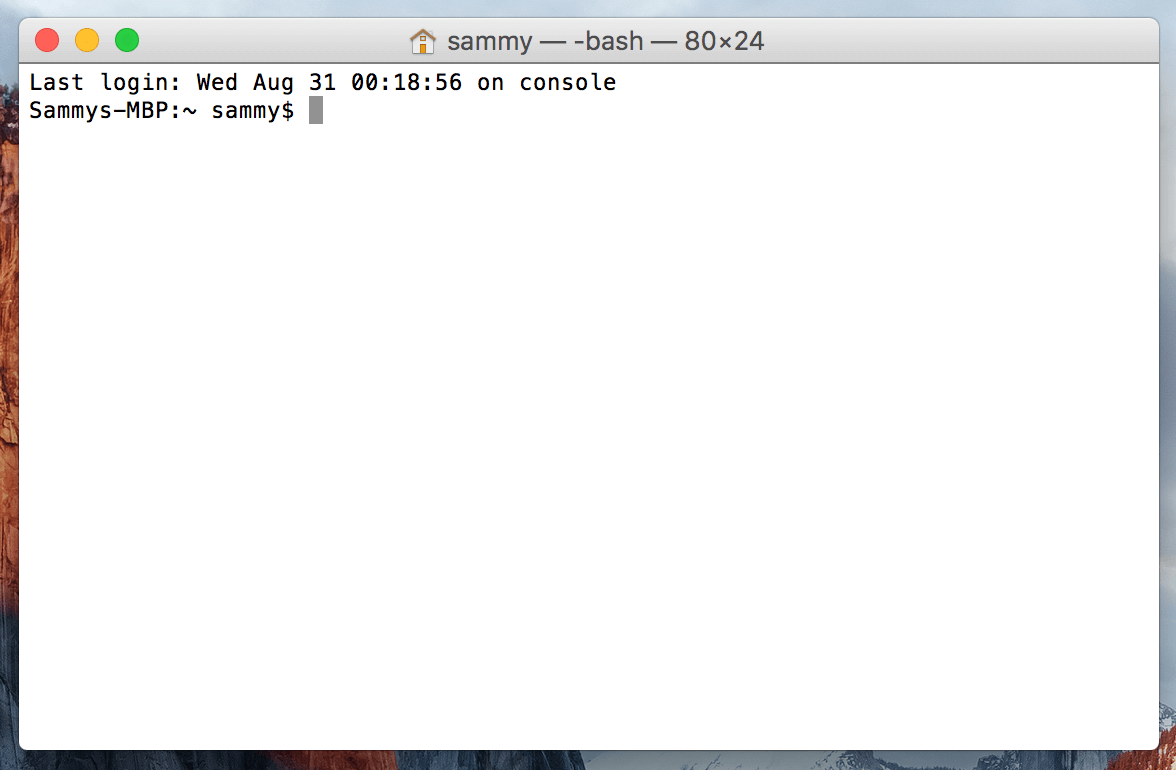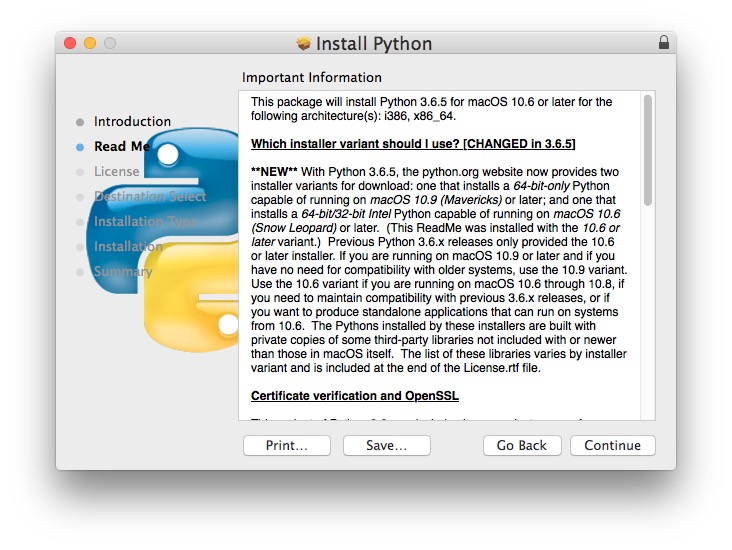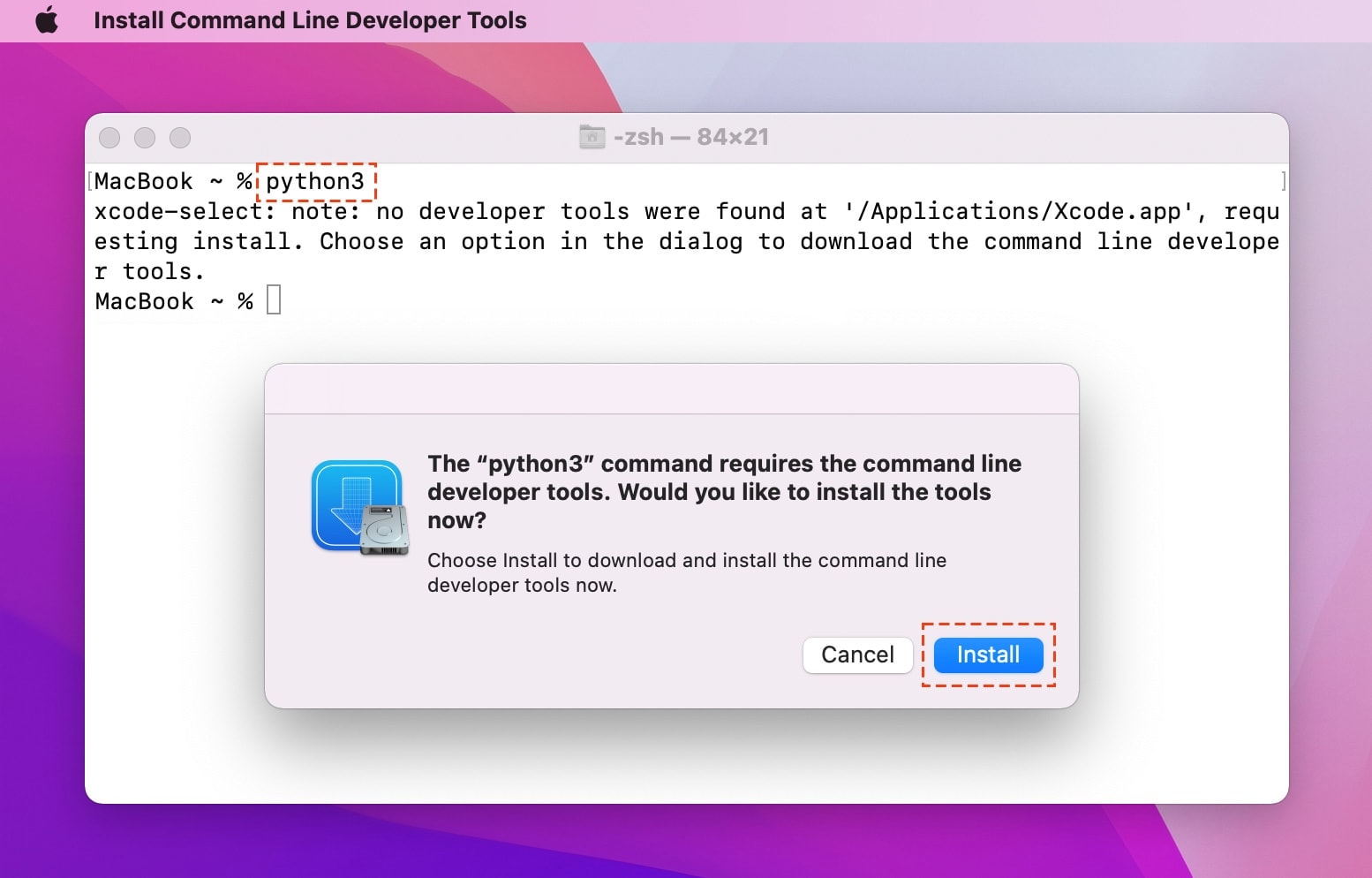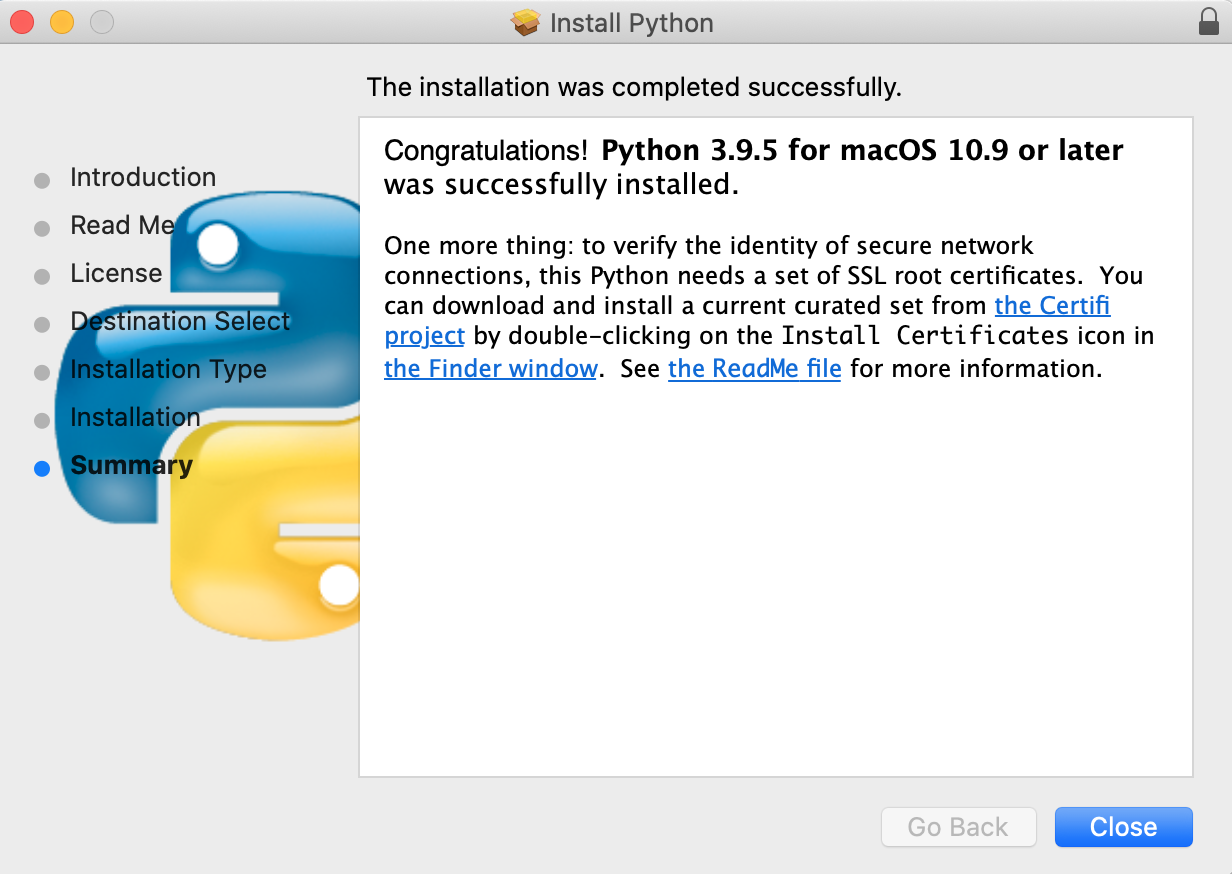

- Install python 3 mac not as default how to#
- Install python 3 mac not as default install#
- Install python 3 mac not as default password#
Run this command if you're using Bash (again, this is the default with MacOS): echo -e 'if command -v pyenv 1>/dev/null 2>&1 then\n eval "$(pyenv init -)"\nfi' > ~/.bash_profile Then you want to add PyEnv Init to your terminal. zshrc file instead: echo 'export PYENV_ROOT="$HOME/.pyenv"' > ~/.zshrcĮcho 'export PATH="$PYENV_ROOT/bin:$PATH"' > ~/.zshrc Or if you've installed ZSH (or OhMyZSH) like I have, you'll want to edit the. bash_profile in Bash (which is installed in MacOS by default): echo 'export PYENV_ROOT="$HOME/.pyenv"' > ~/.bash_profileĮcho 'export PATH="$PYENV_ROOT/bin:$PATH"' > ~/.bash_profile Rehashing python pip Shims are lightweight executables that simply pass your command along to pyenv. shims PATH $(pyenv root)/shims:/usr/local/bin:/usr/bin:/bin I'm quoting them at length again because I really can't explain this better myself. python pip PATH /usr/local/bin:/usr/bin:/binĪnd here is their explanation of what a Shim is. This is a long explanation of how PATH works in MacOS (and Unix), straight from the pyenv GitHub repo.
Install python 3 mac not as default how to#
How to Set Up Your MacOS PATH for pyenv (Bash or ZSH)įirst you need to update your Unix path to pave a way for PyEnv to be able to interact with your system.

Install python 3 mac not as default install#
Just re-run the above pyenv install 3.9.2 and it should now work. I had to do this after upgrading to MacOS Big Sur, but once I did, all the following commands worked fine. You can get the latest version of Apple's Xcode here. You may want to run this while you're sleeping. Xcode is a whopping 11 gigabytes, but you'll want to be up-to-date. Xcode is a tool created by Apple that includes all the C libraries and other tools that Python uses when it runs on MacOS. If you encounter an error that "C compiler cannot create executables" then the simplest way to solve this is to reinstall Apple's Xcode. For example, once Python 4.0.0 comes out, you can run this: pyenv install 4.0.0 Troubleshooting pyenv Installation Note that you can substitute 3.9.2 for whatever the latest version of Python is. Now you just need to run the following command: pyenv install 3.9.2 How to Use pyenv to Install Python or Update Your Python Version Now you can install the latest version of Python. Run this command: brew install pyenv PyEnv installing This library will help you switch between different versions of Python (in case you need to run Python 2.x for some reason, and in anticipation of Python 4.0 coming). Now let's take a moment to install PyEnv. (Or press any other key if you get cold feet.) How to Install pyenv to Manage Your Python Versions

Homebrew will ask you to confirm you want to install the following. Your terminal will probably look different from this. A screenshot of my heavily customized terminal.
Install python 3 mac not as default password#
This is the same password you type when you log into your Mac. You will need to type your password to run this command. Your terminal will ask for Super User-level access. Now that you're in a command line, you can install the latest version of Homebrew by running this command: /bin/bash -c "$(curl -fsSL )" You can do this by using MacOS spotlight (command+space) and typing "terminal". How to Install Homebrew on Macįirst you need to install Homebrew, a powerful package manager for Mac. By the way, if you're wondering why I keep referring to Python 3.x – the x is a stand-in for sub-versions (or point releases as developers call them.) This means any version of Python 3. Have a fun day and happy coding.īut if you want a proper Python version control system to keep track of various versions – and have fine-grain control over which version you use – this tutorial will show you exactly how to accomplish this.

You can run Python 3 using this command (with the 3 at the end). A Single Command to Run Python 3įor some of you reading this, this command may be enough. Until Apple decides to set Python 3.x, as the default you're going to have to install it yourself. Instead, it is recommended that you transition to using 'python3' from within Terminal. Future versions of macOS will not include Python 2.7. This version is included in macOS for compatibility with legacy software. If you try to run Python from your MacOS terminal, you'll even see this warning: WARNING: Python 2.7 is not recommended. And Python 4.x will be out soon, but it will be completely backward compatible. The entire Python community has now moved on to using Python 3.x (the current version as of writing this is 3.9). But it's Python Version 2.7, which is now deprecated (abandoned by the Python developer community).


 0 kommentar(er)
0 kommentar(er)
